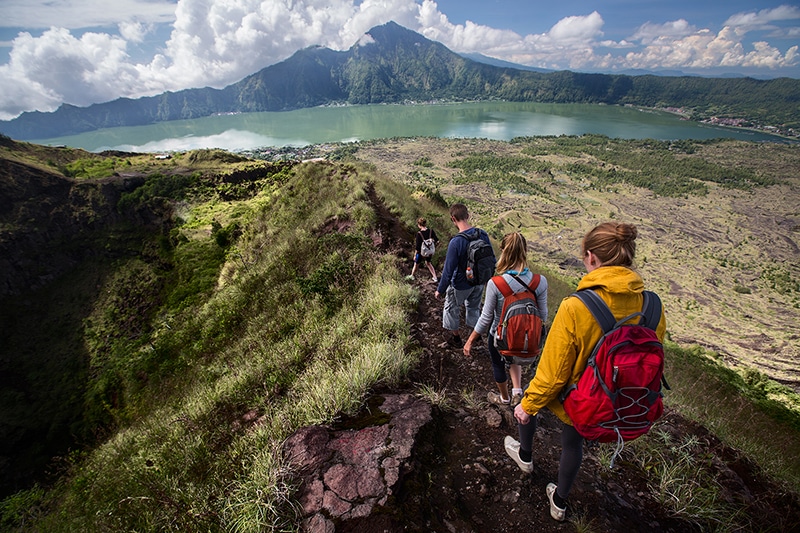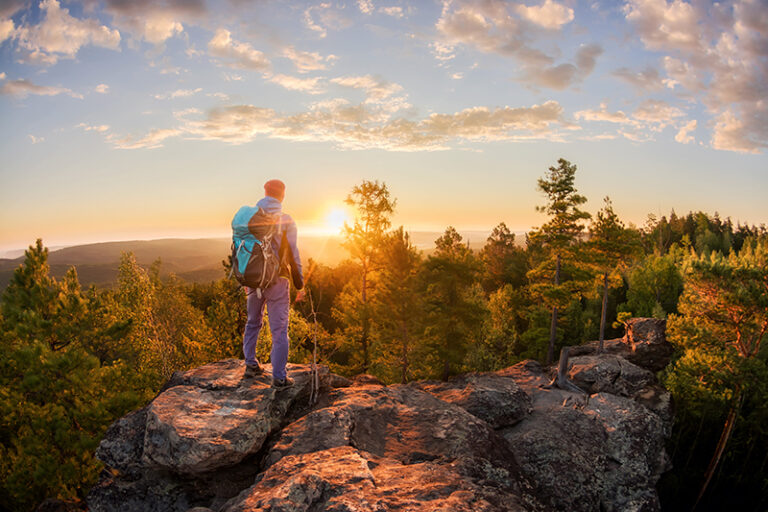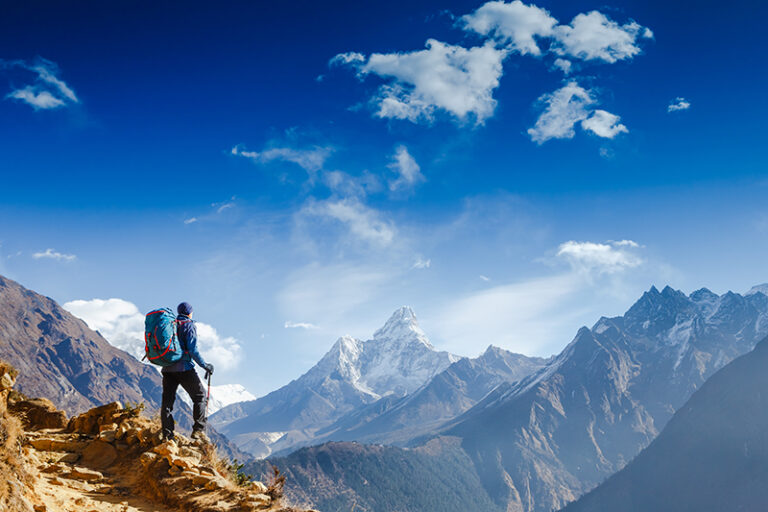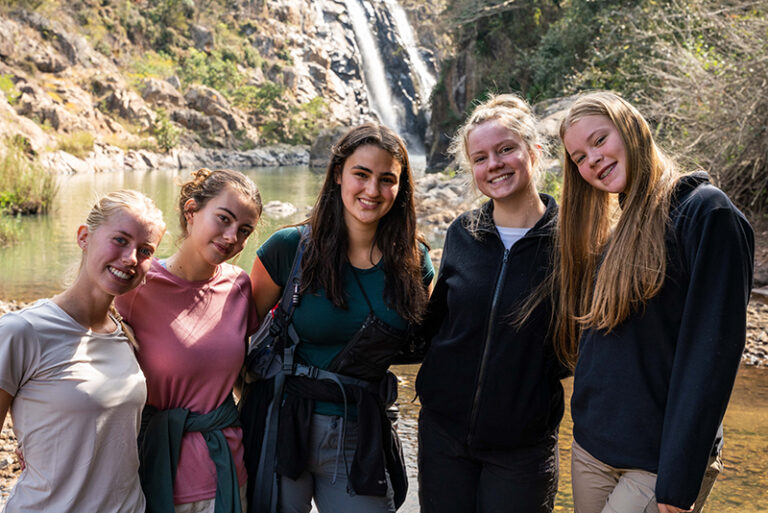Leadership expeditions are an excellent opportunity for students to enhance their future prospects. With the physical challenge of a trek, mental tests like budget management and endless cultural barriers to navigate, they walk away from these experiences transformed on many different levels. Travelling away from home, and mixing with other cultures and friendship groups, is something that can’t be replicated in the classroom – and plays a huge role in the transformation you will see in your students.
Confidence-boosting
Liam Brophy was 14 when he went on a two-week Leadership Expedition to Morocco in 2010. More than a decade on, he believes this experience helped his confidence to grow, inspired his passion for travel and, ultimately, shaped his career. “That trip completely changed me as a person. I was a shy kid, and this was beyond anything I’d ever done before.”
Stepping outside of his comfort zone, trekking through the Atlas Mountains and living alongside a remote Berber community, Liam tested himself in a way that no school environment could. “I learned valuable life skills that, as someone not so academic, I wouldn’t have gained from an exam,” he said. “I returned home more confident, and better able to communicate with adults. My mum said that in those two weeks, I changed from a boy to a young man. She said the change was astronomical in such a short space of time.”
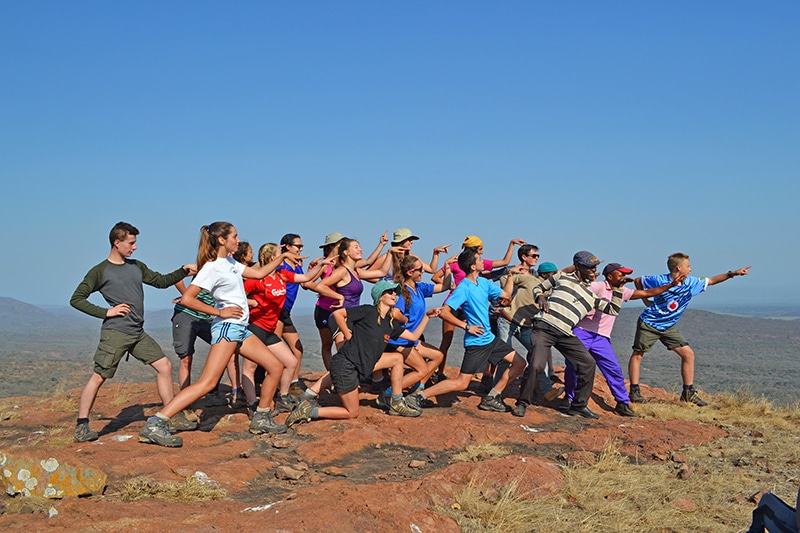
Students run the show
Allowing students to take the reins on an expedition has a transformative effect, according to one of our travelling teachers. “The students have to do everything, from managing the budget to cooking for themselves. We, the teachers, support them, but they run the show,” she said.
“In Iceland, our students were camping and had to cook their own food throughout the trip. Cooking for 17 people on three stoves is harder than you think. So when they created something that everyone actually enjoyed, it may seem like a small win, but it was massive for them. They were so proud of themselves. This kind of hands-on experience not only fosters independence and teamwork but also aligns with the principles of sustainable travel. Encouraging students to manage resources efficiently and appreciate the value of self-sufficiency contributes to a more environmentally conscious approach to exploring the world.
After an expedition, many of this customer’s students were “completely different”, offering to lead school assemblies about the trip where before they would have been too shy. “Many students arrive quiet, and not confident to contribute to the group, and by the end, they are leading the team,” she said. “They have done something completely alien to them, with people they might not normally mix with. These trips have an impact not just on students’ careers, but on their lives in general.”
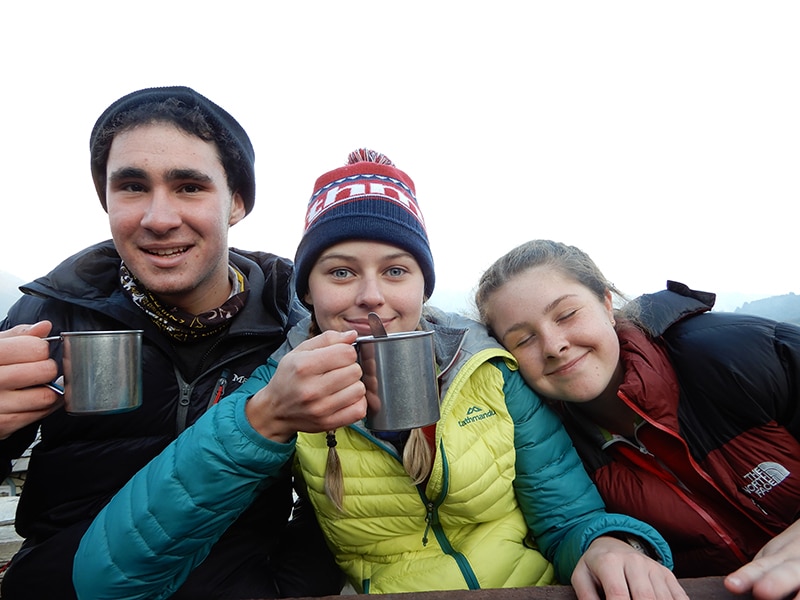
Cultivating entrepreneurial skills from the get-go
The journey into leadership frequently commences prior to the commencement of the student expedition, as fundraising introduces an entrepreneurial dimension. Liam Brophy, for instance, independently raised the entire fund required for his Morocco expedition. He accomplished this feat by organizing a sponsored triathlon and undertaking various tasks for neighbors, which included dog walking and car washing.
Jaimee Relph raised her entire trip fee for an expedition to North India when she was 16. Now aged 23, and still involved with World Challenge, she still sees fundraising as a major part of expeditions. “You appreciate the value of how much it costs to go more, and so you get much more out of the trip by jumping on all of the opportunities offered in-country because you worked so hard to get there. Pushing yourself to fundraise allows you to develop invaluable skills before you have even left the country ” she said.
Tapping into the entrepreneurial side of things can feed into project management on the expedition, and in later experiences. For Jaimee, this revealed itself during the community-led project phase of her expedition. She said: “We had a budget to spend on renovations for a community youth centre and working out how we could have the biggest impact with this budget in a short timeframe required creativity and local collaboration.”
“Negotiating prices with locals, whilst buying and organising the transport of building materials in central India, I was completely out of my comfort zone, but the commitment and drive the team showed meant we pushed ourselves – which is when we really developed. Looking back at the context we were in, and the tight timeframe we had to work with makes it even more rewarding that we pulled it off.”
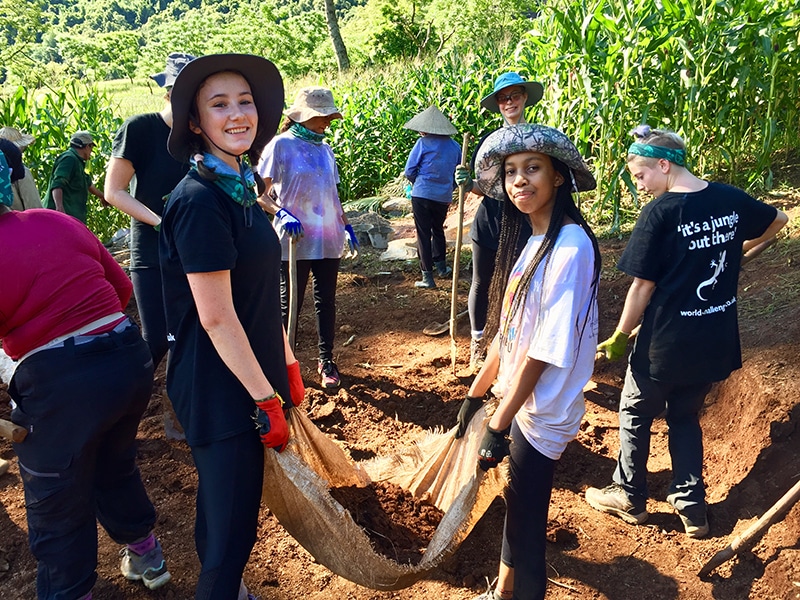
Finding their place
Jaimee, who whilst training to become a leader now assists on expeditions, sees students develop their confidence and characters massively in the short space of a trip. “Each person learns what they bring to the team that’s unique. Maybe you’re the reliable shoulder to lean on, the person who teaches all the card games in the evening, or the one who’s really good at communicating with the locals. Or perhaps you’re the joker who keeps group morale up on day three of a tough trek. Everyone manages to find their place in the team,” she said.
For Jaimee, Leadership Expeditions not only develop students’ confidence and resilience but also offer a crucial insight into challenges faced in different parts of the world. “If you have never seen the issues faced, you can’t relate to them,” she said. “One thing that always stands out for me is the number of fundamental similarities that you have with those you meet in-country. This is so important when trying to understand and make an impact in the world you live in. Leadership Expeditions enable students to form their own opinions on global challenges, after seeing issues first-hand. I have seen it give young people a fire in their belly to take action about injustices in the world.”
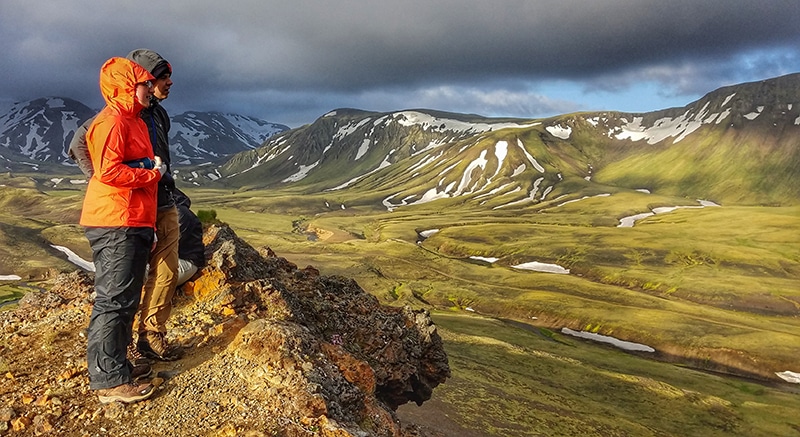
Written by Ellie Ross
